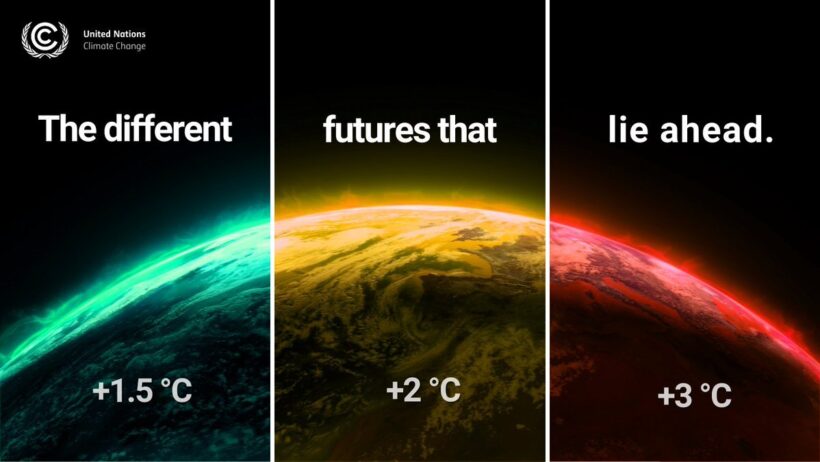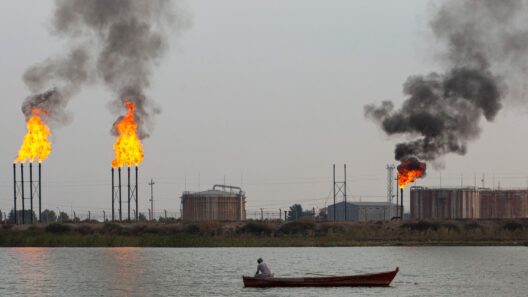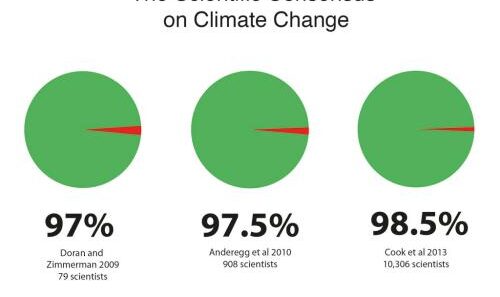The world is a vast clock, ticking relentlessly, with its mechanisms governed by the intricacies of nature and human intervention. As the hands of this clock move forward, many are beginning to question whether we have already crossed the point of no return regarding climate change. The term “irreversible” echoes ominously in discussions among scientists and policymakers, conjuring images of a dystopian future. But what does it truly mean, and are we indeed standing on the precipice of an ecological abyss?
Climate change has been likened to a slow-motion catastrophe. The effects are gradual yet pervasive, manifesting in erratic weather patterns, rising sea levels, and an unprecedented increase in species extinction rates. All these phenomena serve as a stark reminder of the fragility of our planet. Nonetheless, the dialogue surrounding climate change often oscillates between doom and optimism, creating a paradox in which the severity of the crisis blinds us to potential solutions.
At its core, the question of irreversibility hinges on the concept of tipping points. Tipping points are thresholds where a small change can lead to significant, often irreversible consequences. Take the melting of the Arctic ice cap, for instance. The reduction in ice not only raises sea levels but also diminishes the Earth’s albedo effect, causing more sunlight to be absorbed by the oceans and resulting in further warming. Once this tipping point is reached, it may take millennia for equilibrium to restore if it’s possible at all. The asynchronous relationship between cause and effect within the climate system renders predictions a daunting challenge.
Numerous scientific studies underscore the urgency to act swiftly. Climate models suggest that if global temperatures rise by more than 2 degrees Celsius above pre-industrial levels, we risk triggering several tipping points. From the release of methane—an even more potent greenhouse gas trapped in the permafrost—to the collapse of the Amazon rainforest, the ramifications could be catastrophic. This is not a mere theoretical discussion; it is happening now, with reports of unprecedented wildfires and floods underscoring the immediacy of the situation.
However, it is essential to contend with the notion that climate change may not be entirely irreversible. Nature is resilient and has an extraordinary capacity for recovery given the right conditions. Consider the numerous restoration projects across the globe aimed at rehabilitating damaged ecosystems. Reforestation efforts have shown promise in not only capturing carbon but also restoring biodiversity. The restoration of wetlands, too, has been heralded as a critical strategy for enhancing carbon sinks and revitalizing local flora and fauna. So, while some effects of climate change may indeed be irreversible, others can be mitigated through proactive and sustained human effort.
The discourse surrounding the potential for mitigation must also encompass transformative change. It is not sufficient to merely adapt; societies must invent new paradigms for living harmoniously with our environment. The shift towards renewable energy sources is paramount in this endeavor. Wind, solar, and hydroelectric power present sustainable alternatives to fossil fuels, offering a path to significantly curb CO2 emissions. This transition is not only feasible but also economically advantageous. The renewable energy sector is one of the fastest-growing industries, promising job creation and energy independence.
Diverging thoughts on the permanence of climate change beg the question: what degree of responsibility do those in power hold? Governments and corporations have a fiduciary duty to act in the best interests of their citizens and stakeholders. Yet, climate inaction persists, often governed by short-term gain and political rhetoric instead of long-term sustainability. The juxtaposition of corporate interests against ecological necessity creates an ethical quandary. Is it unjust to prioritize profit over planet? This moral debate transcends borders, illustrating that climate change is not an isolated issue but a global conundrum demanding collective action.
Moreover, individual agency must not be overlooked in the broader narrative of climate change. Each person possesses a unique ability to enact change through conscious consumerism, sustainable practices, and advocacy. By altering consumption patterns and supporting eco-friendly policies, individuals can contribute to a collective momentum. Small actions can accumulate, akin to drops in a bucket, demonstrating that comprehensive social change tends to stem from grassroots movements. This is exemplified by the youth climate strikes that have swept across nations, evoking a reawakening of environmental consciousness.
As the clock continues to tick, we are at a crucial juncture—a nexus where the potential for change exists alongside the threat of catastrophe. The outlook may appear grim when discussing the irreversible effects of climate change, yet a silver lining persists. By understanding the delicate balance between what may have been lost and what can still be salvaged, it is possible to carve a pathway toward resilience and regeneration. Humanity possesses an unparalleled capacity for innovation and adaptability; thus, it remains pivotal to galvanize collective efforts to orchestrate a dramatic paradigm shift in how we view and interact with our planet.
The ticking clock is a call to action—an entreaty to harness our collective will to forge a sustainable future. The question isn’t whether climate change is irreversible; it’s whether we are willing to act decisively to alter our trajectory. The sands in the hourglass do not stop for anyone, but the potential for a resilient tomorrow rests squarely within our grasp, should we choose to seize it.








